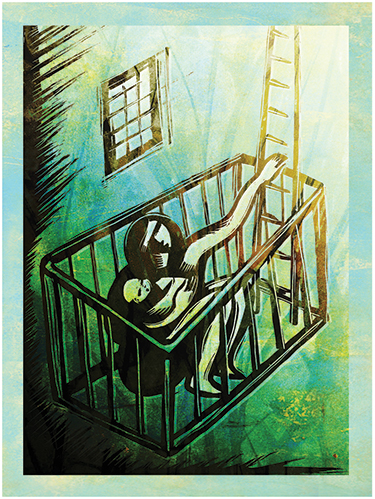Researchers study how incarcerated women bond with their babies
 The UW School of Social Work is partnering with Washington State Department of Corrections, known for its progressive history of working with women behind bars. One departmental innovation allows pregnant incarcerated women to maintain custody of their newborns, and provides a special unit where the babies remain in their mothers’ care.
The UW School of Social Work is partnering with Washington State Department of Corrections, known for its progressive history of working with women behind bars. One departmental innovation allows pregnant incarcerated women to maintain custody of their newborns, and provides a special unit where the babies remain in their mothers’ care.
The thinking is clear: a mother with a strong connection to her baby becomes more emotionally available and socially responsible. The relationship fosters maternal self-esteem and mitigates self-destructive behavior. The baby feels secure and loved, develops a healthy sense of self, and the lifelong ability to form healthy attachments. A cycle of incarceration—which sometimes crosses generations—may, for the first time, be upended.
However, after 10 years of operation, this program, long lauded for its humanity, lacked any solid science that it was ending a cycle of abuse, depression and drug dependence that often leads to prison and high recidivism rates. So Social Work doctoral candidate Marie-Celeste Condon assembled a research panel of mothers, corrections officers and early childhood professionals—three groups that wanted a deeper understanding of the mother-child connection in prison.
The research model supports the dignity, worth and contribution of everyone involved in the study, merging research with advocacy. People with the least amount of power are now making some of the most insightful proposals. And those at the top of prison hierarchy are listening. This dynamic approach to research will provide the kind of real-time data that leads to real-world action that keeps mothers and children together—and women out of prison.